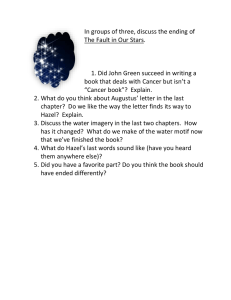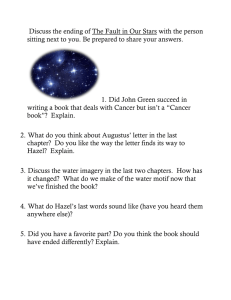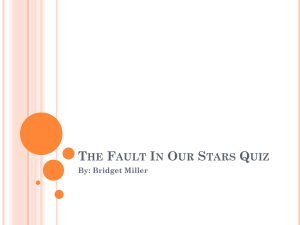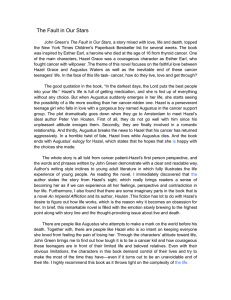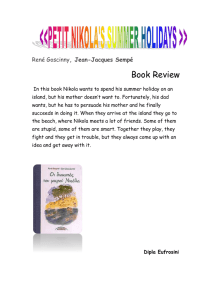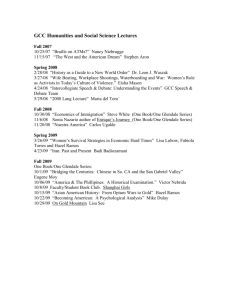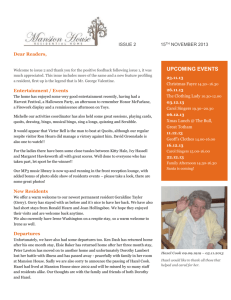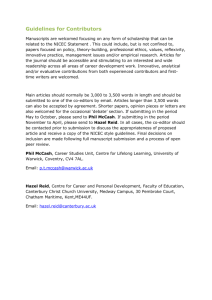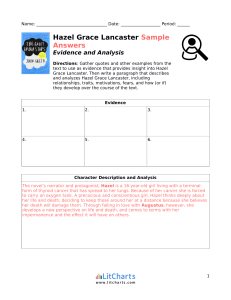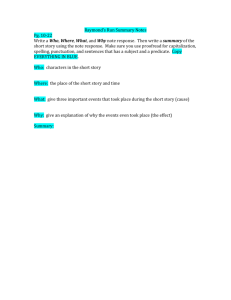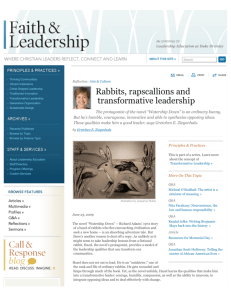The Fault in Our Stars
advertisement
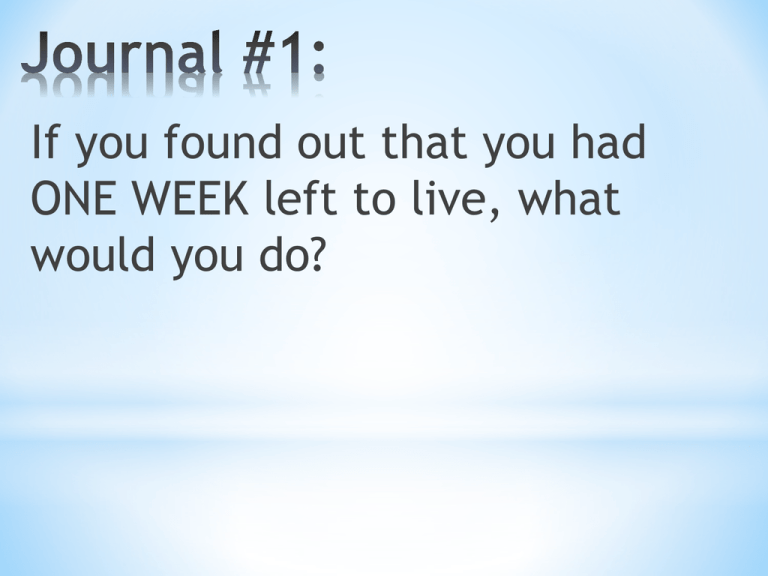
If you found out that you had ONE WEEK left to live, what would you do? 1. anomaly: a deviation from the common rule, type, arrangement 2. bacchanalia: a drunken feast; orgy 3. bereft: to deprive and make desolate, especially by death 4. calibrate: to plan or devise something carefully so as to have a precise use, application, appeal 5. coterie: a group of people who associate closely, an exclusive group; clique *Green grew up in Orlando, Florida *He graduated from Kenyon College in 2000 with a double major in English and Religious Studies. *After leaving college, Green spent five months working as a student chaplain in a children's hospital *He attended the University of Chicago Divinity School at the time, although he never actually attended. *His experiences of working with children with life-threatening illnesses inspired him to later write The Fault in Our Stars. * Hazel Grace Lancaster: 16, is the novel's narrator. She goes by Hazel, but Augustus (and sometimes his father) calls her "Hazel Grace". She is a thyroid cancer patient, having been diagnosed when she was 13. *Augustus Waters: 17, is in remission. He was diagnosed with osteosarcoma at a young age and lost his right leg to the disease. *Isaac: Augustus' best friend. He has eye cancer, and eventually loses his sight because of it. *Peter Van Houten: a recluse author whose first and only work, An Imperial Affliction, serves as the basis of most of Hazel's beliefs for both her life and relationship with Augustus. *Mrs. Lancaster: Hazel's mom. She often takes every opportunity to be enthusiastic at small occasions, such as Hazel's "half-birthdays", Hazel describes her mother as her best friend. *Mr. Lancaster: Hazel's dad, a man who tends to cry a lot. *Mrs. Waters: Augustus' momMark Waters: Augustus' dad *Lidewij Vliegenthart: Van Houten's personal assistant. *Kaitlyn: One of Hazel's only friends left from high school. *Patrick: social worker who runs the support group. He once had testicular cancer and was supposed to die *Monica: Isaac's girlfriend Thyroid Cancer * Is a malignant thyroid neoplasm originating from follicular or parafollicular thyroid cells. * Affects a person’s ability to breathe and speak. * Occurs often in young females Osteosarcoma * The eighth most common form of childhood cancer, comprising 2.4% of all malignancies children, and approximately 20% of all primary bone cancers. * Incidence rates for osteosarcoma in U.S. patients under 20 years of age are estimated at 5.0 per million per year. * It originates more frequently in the metaphysical region of tubular long bones, with 42% occurring in the femur, 19% in the tibia, and 10% in the humerus. About 8% of all cases occur in the skull and jaw, and another 8% in the pelvis. 1. deferential: showing deference 2. deign: to think fit or in accordance with one's dignity; condescend 3. dishevel: hanging loosely or in disorder; unkempt 4. dysmorphia: malformation; an abnormality in the shape or size of a body part 5. edema: effusion of fluid into cells or body cavities 1.Eponymous: giving ones name to a tribe, place, album 2.Existential: [ly] pertaining to existence 3.Flummox: [ed] to bewilder, confound, confuse 4.Fraught: filled or laden with 5.Hamarita: tragic flaw 1.Inexorable: unyielding, unalterable 2.Insipid: without distinctive, interesting, or stimulating qualities 3.Lascivious: inclined to lustfulness; wanton; lewd 4.Malevolent: evil, harmful, injurious 5.Misnomer: a misapplied or inappropriate name or designation 1. 2. 3. 4. 5. 6. Nihilism: nothingness or nonexistence... an extreme form of skepticism: the denial of all real existence or possibility of objective basis for truth Ontological: [ly] of or pertaining to ontology: the branch of metaphysics that studies the nature of existence or being as such Palliative: serving to relieve or lessen without curing, mitigate, alleviate Sobriquet: a nickname Trope: any literary or rhetorical devise, as a metaphor, metonymy, synecdoche, and irony, that consist in the use of words in other than their literal sense Vernacular: native or indigenous language, language of people opposed to literary language
